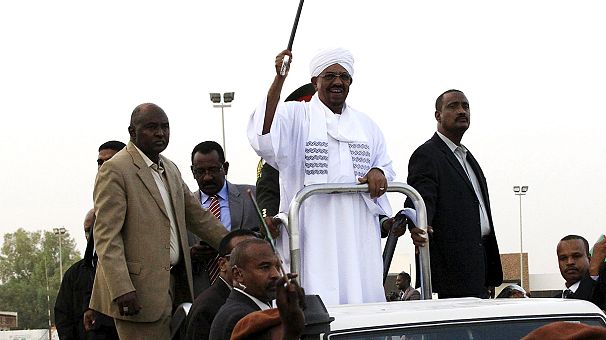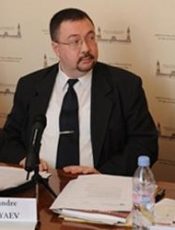The African Union (AU) summit took place on June 7-15 in Johannesburg. It was the most intriguing and fruitful meeting in many years. African leaders made a big step on the way to economic integration as Africa is turning into an international entity.
The implementation of Agenda 2063 (a far-reaching plan indeed!) was a priority topic. (1) This is a program of general development and economic independence. There may be obstacles on the way, but Africa has achieved a big economic success and that’s an undisputable fact. With all hurdles to overcome (1), Africa is certainly outpacing the European Union.

There were other events to occur this year related to the summit. It all mirrors a certain trend. The NEPAD summit is worth to be mentioned. The abbreviation stands for the New Partnership for Africa's Development, an African Union strategic framework for pan-African socio-economic progress sometimes called the program of African Renaissance. (3) The initiative was put forward by Tabo Mbeki, former South African President, as a plan for social, economic and cultural regeneration of the continent. No doubt the emergence of the program was one of the reasons President Mbeki was dismissed (outside forces played an important role to make him resign). South Africa is involved in the North-South Corridor – a multi-modal and multi-dimensional infrastructure system that includes road, rail, border posts, bridges, ports, energy and other related infrastructure – which passes through 12 countries. The 12 countries include Tanzania, Congo, Malawi, Zimbabwe, South Africa, Zambia, Botswana, Mozambique, Kenya, Ethiopia, Sudan and Egypt.
The June 10 tripartite summit brought together the Southern African Development Community (SADC), The East African Community (EAC) and the Common Market for Eastern and Southern Africa (COMESA). The parties signed an agreement on trade free zone (TFA). The Tripartite TFA encompassing 26 Member/Partner States from the three organizations with a combined population of 625 million people and a Gross Domestic Product (GDP) of USD 1.2 trillion will account for half of the membership of the African Union and 58% of the continent’s GDP. The agreement is one more step on the way of boosting trade and establishing an economic entity. It took four years to form the COMESA-EAC-SADC Tripartite association. The African Union officially began negotiations on plans to create a continent-wide free trade zone called the new Continental Free Trade Area by 2017. South Africa and 11 other countries signed up for an ambitious proposal of having a single air-transport market on the continent within two years. (4) Kenya's President Uhuru Kenyatta urged African countries to end their reliance on foreign aid saying the future of the continent cannot be left to outside forces. In a message posted to his Twitter account on June 12, Kenyatta says foreign aid often carries unacceptable conditions and is not a solid basis for prosperity and freedom in Africa.
Everything’s not that rosy, there are also hitches on the way. Some issues evoke sharp controversy. One of them is the reform of the United Nations. On the one hand, the African Union is unanimous in its desire to make the United Nations Security Council more democratic. In 2005 the AU reached the Ezulwini Consensus (5), a position on international relations and reform of the UN (6). It calls for a more representative and democratic Security Council, in which Africa, like all other world regions, is represented. The AU put forward a demand for two permanent seats and a total of five non-permanent seats with the African Union to select candidates. Allegedly, an agreement was reached on South Africa and Nigeria to become permanent UN Security Council members. But speaking at the summit Zimbabwean President Robert Mugabe blasted the two candidates saying Africa would never agree to them getting permanent seats on the UN Security Council. This was because they both voted for UN Security Council Resolution 1973 in 2011, which authorized military action against the regime of Libyan leader Muammar Gaddafi. According to him, they betrayed the continent which could never trust them. (7)
There is another important issue on the agenda. Since a long time the AU has been unwilling to recognize the governments that came to power through coup, even when a regime was popular and enjoyed political support within the state. Some unconstitutional regimes are subject to collective ostracism while in other cases the AU turns a blind eye on those who evidently come to power as a result of coup. The 2012 coup in Mauritania was quite, but it entailed a wave of indignation to suspend the country’s membership in the Union. In 2010-2011 an internal crisis hit Cote D’Ivoire (Ivory Coast).Alassane Dramme Ouattara, the incumbent «president», came to power with the help of French military. The presidential palace was destroyed. No reaction followed. There are cases of absurd hypocrisy, especially when it comes to the right to re-election. This May the Burundi's constitutional court approved President Pierre Nkurunziza's bid for a third term. The decision provoked a flurry of indignation on the part of African Union though the ruling in no way contradicts the country’s constitution. The African Union openly interferes into the internal affairs of a sovereign state which is its member.

There was a scandal during the event. The International Criminal Court's 2009 quest to arrest Sudanese President Omar al-Bashir on charges of war crimes and genocide took a step closer to reality on June 14 after he arrived at the African Union summit in South Africa. The North Gauteng High Court in Pretoria barred al-Bashir from leaving the country while hearings determine the fate of the ICC arrest warrant. The ICC always closely watches the Sudanese President’s moves when he leaves his country. Local NGOs rushed to court in an effort to have a decision ordering the South African government to arrest the President of Sudan. The court needed just a few hours to hand down the ruling in favor of claimants. It proves the fact that there are instruments to exercise internal leverage upon the country’s government to make it comply with what the global power tells it to do. There was no legal ground for detaining and putting the Sudanese President under arrest. The mantra about the need for South Africa to cooperate with the International Criminal Court is legally groundless. Any young and inexperienced lawyer knows that cooperation and arrest are not the same thing. It’s clear that the judges realized how absurd their ruling was. Even an ordinary person cannot be arrested upon the demand of foreign or international bodies. The case should be studied first before a ruling on extradition or refusal to extradite is handed down. This time in South Africa human rights activists filled TV channels to persuade that it should be done automatically. The judges were confused. Declaring the decision to take the Sudanese President into custody the court said it would submit the legal opinion for the ruling …next week.
The South African government should be given its due. It guaranteed in practice its obligations and respected the immunity of foreign head of state coming to the country upon an invitation to take part in a session of international body. Omar al-Bashir left the country an hour before the ruling was handed down.
All told, the Johannesburg summit showed that there are serious contradictions between the members of the African Union while the West exerts pressure on Africa. No matter that, the AU is moving to economic integration and independence. No doubt, the pressure will grow. It had to fight hard for political independence. Achieving economic independence requires no less effort.
Johannesburg, South Africa
Footnotes:









